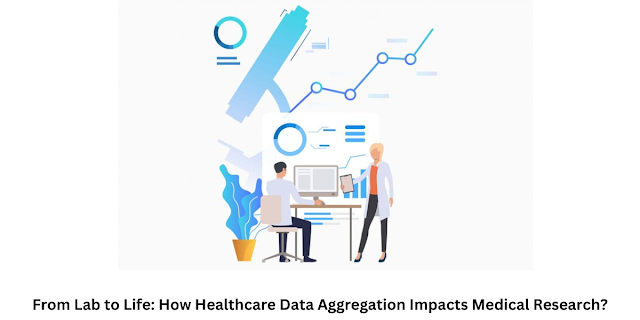Healthcare Data Aggregation has emerged as a transformative force in medical research, bridging the gap between laboratory findings and real-world applications. It has a significant impact on advancing medical research and improving patient outcomes, particularly the platforms that perform the function.
The Rise of Healthcare Data Platform
Health data platforms play a pivotal role in aggregating diverse sets of healthcare information. These platforms act as centralized repositories, collecting data from various sources such as electronic health records, wearable devices, and clinical trials.
Accelerating Research through Comprehensive Data Sets
· Improved Accessibility
One of the key benefits of Data Aggregation in Healthcare is enhanced accessibility to a wide range of health-related information. Researchers can tap into vast datasets, allowing for more comprehensive analyses and a deeper understanding of various medical conditions.
· Enhanced Collaboration
These platforms facilitate collaboration among researchers, healthcare professionals, and institutions. By providing a centralized space for data sharing, these platforms break down silos and enable interdisciplinary collaboration, fostering a more holistic approach to medical research.
Advancements in Personalized Medicine
· Tailoring Treatments
Health Data Aggregation enables the creation of detailed patient profiles, incorporating genetic, lifestyle, and environmental factors. This wealth of information empowers researchers to develop personalized treatment strategies, moving away from the traditional one-size-fits-all approach.
· Predictive Analytics
By leveraging aggregated health data, researchers can employ advanced analytics and machine learning algorithms to predict disease outcomes and identify at-risk individuals. This proactive approach allows for early intervention and better management of chronic conditions.
Healthcare Data Aggregation: Evidence for Drug Development
· Informing Clinical Trials
Health data aggregation contributes valuable real-world evidence to inform the design and execution of clinical trials. Researchers can identify patient populations more efficiently, optimize trial protocols, and accelerate the drug development process.
· Post-Market Surveillance
After a drug's approval, it is crucial to continuously monitor its safety and efficacy. A healthcare data platform plays a vital role in post-market surveillance, helping researchers detect and address potential issues promptly.
Final Verdict
That being said, healthcare data aggregation serves as a linchpin in translating laboratory discoveries into tangible improvements in patient care. From accelerating research through comprehensive datasets to advancing personalized medicine and informing drug development, the impact of data aggregation in healthcare is profound.
If you want to get your
hands on the most reliable healthcare platforms, connect with Persivia and get a quote!




No comments:
Post a Comment
Please do not enter any spam link in the comment box